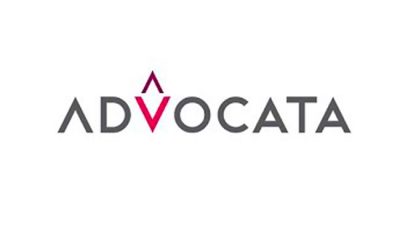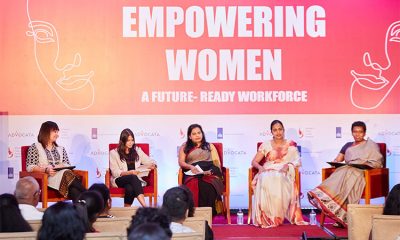Business
Advocata Institute releases comprehensive report on the tea industry of Sri Lanka
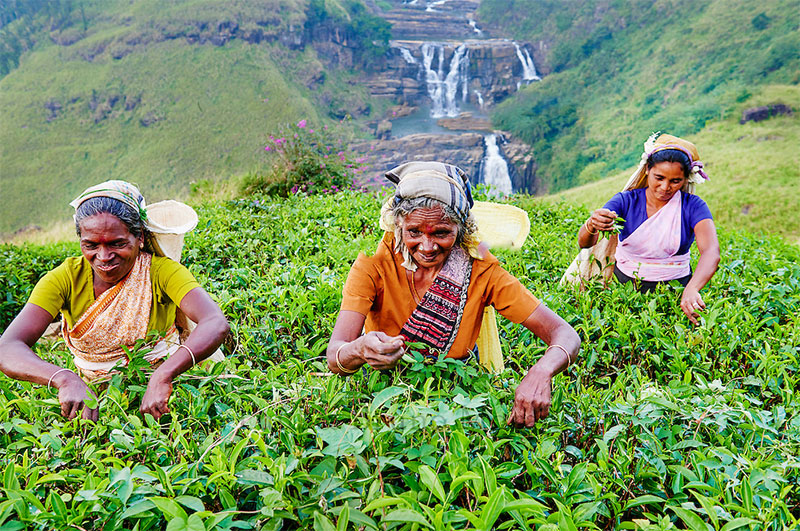
Advocata Institute released its latest report titled “Market Competitiveness of the Tea Industry of Sri Lanka” on Thursday, December 28, 2023. The report is authored by Sudaraka Ariyaratne, Research Consultant at Advocata Institute.
The report begins with an introductory chapter that details the historical evolution of the island’s tea industry. The report finds that the present standing of the industry in the context of the international market is not too grim, but argues that issues related to the labour market, capital investment, value addition, and quality control limit the industry’s competitiveness in the global stage. The rest of the report takes the form of four discussion papers, each on the four areas of concern listed above, that present an economic theory-based lens to approach these issues, and discuss potential solutions.
The attendance-based minimum wage model is partly responsible for the high costs of production of Sri Lanka’s RPCs, and their low productivity, helping make Ceylon tea uncompetitive in the international market. In contrast, the smallholder sector, with its market-based wage model, stands out as a more efficient counterpart. Despite being billed as a guarantor of a living wage, the minimum wage model imposes a ceiling on the earnings of estate workers, and also helps preserve the traditional power structures of tea plantations, in which estate workers sit at the bottom. Discussion Paper 1 establishes an economic framework to analyse the minimum wage model, and explores the strategies that RPCs could pursue, with the help of policymakers and other stakeholders of interest, to enhance the industry’s competitiveness under the minimum wage model. The paper also evaluates alternative wage models proposed by stakeholders, that take a more market-based approach to employment within the industry.
Long-term capital investments, such as replanting and infilling, are an essential element of sustained land productivity in the tea industry of Sri Lanka; however, neither RPCs, nor smallholders, seem incentivised to undertake investments of this form. Discussion Paper 2 establishes an economic framework, based on the Growth Diagnostic Framework by Hausmann, Rodrik, and Velasco (2005), to discern the causes of low levels of long-term capital investments in Sri Lanka’s tea estates. The paper finds that to varying degrees, the low rate of returns, uncertainties about the appropriability of returns, and low savings prevent RPCs and smallholders from embarking on long-term capital investments into tea lands. The paper explores the different routes the industry may take, with the help of policymakers and other relevant parties, to overcome these binding constraints to long-term investments, to facilitate the long-term sustenance of the industry.
Sri Lanka has the highest level of domestic value addition among black tea producing countries, but little is known about the economics of value addition. Discussion Paper 3 explores what it means to add value to made tea, what explains the present levels of value addition in the Sri Lankan tea industry, and how profits from value addition are distributed along the value chain. Additionally, the paper establishes an economic framework, based on Porter’s competitive advantage theory, to approach value addition from a strategic point of view, with the aim of optimising returns to the local industry. Based on this framework, the paper explores different strategies the industry may pursue, either in the mass market or in the specialty market, to increase the international competitiveness of Ceylon tea, and enhance the returns to the domestic stakeholders.
Quality is an important determinant of the premium that Ceylon tea fetches in the international market. In the absence of symmetric information between the buyers and sellers of Ceylon tea, high quality sellers receive lower prices than they deserve, which both drives them out of the market, and lowers the overall price and quality of Ceylon tea. Discussion Paper 4 establishes an economic framework, based on George Akerlof’s theory of adverse selection and the theoretical foundations of economics of trust, to understand how asymmetric information on quality negatively impacts the market for Ceylon tea. The paper also explores several strategies, both regulatory and incentive-based, that policymakers and industry stakeholders may pursue to eliminate asymmetric information from the market for Ceylon tea, in order to enhance the premiums that the industry receives.
The report is set to be presented to President Ranil Wickremesinghe, Ministers Mahinda Amaraweera and Jivan Thondaman, and relevant stakeholders of the tea industry in the coming days.
The report on Market Competitiveness of the Tea Industry of Sri Lanka can be accessed on www.advocata.org
Advocata is an independent policy think tank based in Colombo, Sri Lanka. We conduct research, provide commentary and hold events to promote sound policy ideas compatible with a free society in Sri Lanka. Visit advocata.org for more information.
Advocata spokespersons are available for live and pre-recorded broadcast interviews via 0740289818
Business
ADB approves support to strengthen power sector reforms in Sri Lanka
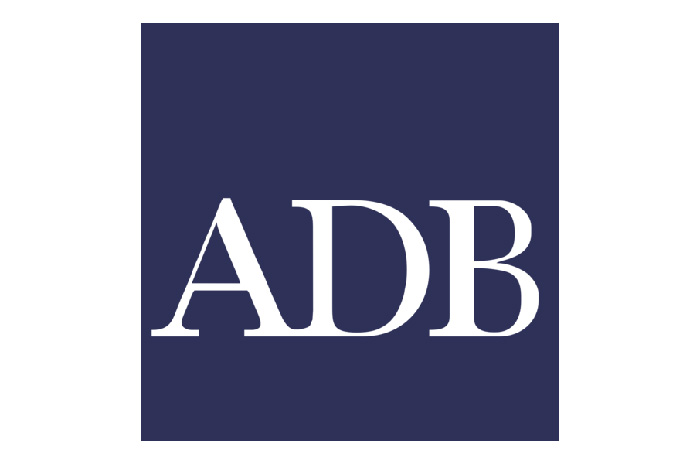
The Asian Development Bank (ADB) has approved a $100 million policy-based loan to further support Sri Lanka in strengthening its power sector. This financing builds on earlier initiatives to establish a more stable and financially sustainable power sector.
This second subprogram of ADB’s Power Sector Reforms and Financial Sustainability Program will accelerate the unbundling of the Ceylon Electricity Board (CEB) into independent successor companies for generation, transmission, system operation, and distribution, as mandated by the Electricity Act of 2024 and its 2025 amendment. The phased approach ensures a structured transition, ensuring progress in reform actions and prioritizing financial sustainability.
“Sri Lanka has made important progress in stabilizing its economy and strengthening its fiscal position. A well-functioning power sector is vital for the country’s continued recovery and sustainable growth,” said ADB Country Director for Sri Lanka Takafumi Kadono. “ADB is committed to supporting Sri Lanka’s long-term development and advancing key reforms in the power sector. This initiative will enhance power sector governance, foster private sector participation, and accelerate renewable energy development to drive sustainable recovery, resilience, and inclusive growth.”
To improve financial sustainability, the program will help implement cost-reflective tariffs and a comprehensive debt restructuring plan for the CEB. It will support the new independent successor companies in transparent allocation of existing debts. This will continue to strengthen their financial viability, enhance creditworthiness, and enable these companies to operate on a more sustainable footing.
The program also aims to strengthen renewable energy development and private sector participation by enhancing transparency and supporting power sector entities that are financially sustainable. It will enable competitive procurement for large-scale renewable energy projects and identified priority generation schemes, while upholding strong environmental standards.
Promoting gender equality and social inclusion is integral to the program. Energy sector agencies have implemented annual women’s leadership programs, adopted inclusive policies, and launched feedback mechanisms to ensure equitable participation of female consumers and entrepreneurs. The program includes targeted support for vulnerable groups, such as maintaining lifeline tariffs and implementing measures to soften the impact of tariff adjustments and sector reforms.
ADB will provide an additional $2.5 million technical assistance grant from its Technical Assistance Special Fund to support program implementation, build the capacity of successor companies, and help develop their business plans and power system development plans.
Business
Union Assurance becomes first insurer to earn the YouTube Silver Play Button

Union Assurance, Sri Lanka’s longest-standing private Life Insurer, has achieved a milestone in its digitalisation journey by being awarded the YouTube Silver Play Button, recognising the Company for surpassing 100,000 subscribers on its official channel. This achievement marks a first in Sri Lanka’s Insurance industry, across both Life and General Insurance, and underscores Union Assurance’s pioneering role in digital engagement.
This accomplishment reflects the Company’s unwavering commitment to making Life Insurance accessible, simplified, and engaging for all Sri Lankans. Through innovative content strategies, Union Assurance has successfully transformed complex Insurance concepts into relatable, informative, and inspiring narratives that empower individuals to protect what matters most; health, wealth, family, and future.
Receiving the Silver Play Button is more than a symbolic accolade; it is a testament to the strength and credibility of Union Assurance’s digital presence. In an era where trust and transparency define brand loyalty, this recognition validates the company’s ability to create content that resonates deeply with a growing audience. It enhances the brand’s authority, reinforces its visibility across digital platforms, and further solidifies Union Assurance as a leader in customer engagement.
Celebrating this achievement, Mahen Gunarathna, the Chief Marketing Officer at Union Assurance stated: “This milestone is a testament to the trust and engagement of our audience and reflects our dedication to innovation, transparency, and customer-centric communication.
Business
LOLC Finance Factoring powers business growth

LOLC Finance PLC, the largest non-banking financial institution in Sri Lanka, brings to light the significant role of its Factoring Business Unit in providing indispensable financial solutions to businesses across the country. With a robust network of over 200 branches, LOLC Finance Factoring offers distinctive support to enterprises, ranging from small-scale entrepreneurs to corporate giants.
In light of the recent economic challenges, LOLC Finance Factoring emerged as a lifeline for most businesses, ensuring continuous liquidity to navigate through turbulent times. By facilitating seamless transactions through online platforms and expediting payments, the company played a pivotal role in sustaining essential services, including supermarkets and pharmaceuticals.
Deepamalie Abhaywardane, Head of Factoring at LOLC Finance PLC, emphasized the increasing relevance of factoring in today’s economy. “As economic conditions become more stringent, factoring emerges as the most sought-after financial product for businesses across various sectors. It offers a win-win solution by providing upfront cash up to 85% of the credit sale to suppliers while allowing end-users/buyers better settlement period.”
One of the standout features of LOLC Finance Factoring is its hassle-free application process. Unlike traditional bank loans that require collateral, LOLC Factoring extends credit facilities without such obligations. Furthermore, LOLC Finance Factoring relieves business entities of the burden of receivable management and debt collection. Through nominal service fees, businesses can outsource these tasks, allowing them to focus on core operations while ensuring efficient cash flow management.
For businesses seeking Shariah-compliant factoring solutions, LOLC Al-Falaah’s Wakalah Future-Cash Today offers an efficient and participatory financing model that meets both financial needs and ethical principles. Understanding the diverse challenges faced by businesses, LOLC Finance Factoring deliver tailored solutions that enhance cash flow, reduce credit risk, and support sustainable growth. Working together with LOLC Al-Falaah ensures access to a transparent, well-structured receivable management solution strengthened by the credibility and trust of Sri Lanka’s largest NBFI, LOLC Finance.
The clientele of LOLC Finance Factoring spans into various industries, including manufacturing, trading, transportation, healthcare, textiles, plantations, and other services, all contributing significantly to Sri Lanka’s economic growth. By empowering businesses with accessible and convenient working capital solutions, LOLC Finance’s Factoring arm plays a vital role in fostering economic development and prosperity of the country.
In the upcoming quarter, LOLC Finance Factoring remains committed to delivering innovative financial solutions tailored to meet the evolving needs of businesses. As Sri Lanka’s economic landscape continues to develop, LOLC Finance Factoring stands ready to support enterprises on their journey towards growth and success.
-

 News6 days ago
News6 days agoWeather disasters: Sri Lanka flooded by policy blunders, weak enforcement and environmental crime – Climate Expert
-
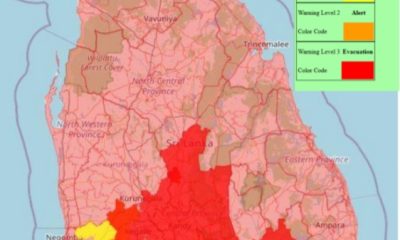
 Latest News7 days ago
Latest News7 days agoLevel I landslide RED warnings issued to the districts of Badulla, Colombo, Gampaha, Kalutara, Kandy, Kegalle, Kurnegala, Natale, Monaragala, Nuwara Eliya and Ratnapura
-

 Latest News7 days ago
Latest News7 days agoINS VIKRANT deploys helicopters for disaster relief operations
-
News3 days ago
Lunuwila tragedy not caused by those videoing Bell 212: SLAF
-

 Latest News4 days ago
Latest News4 days agoLevel III landslide early warnings issued to the districts of Badulla, Kandy, Kegalle, Kurunegala, Matale and Nuwara-Eliya
-

 News2 days ago
News2 days agoLevel III landslide early warning continue to be in force in the districts of Kandy, Kegalle, Kurunegala and Matale
-

 Features4 days ago
Features4 days agoDitwah: An unusual cyclone
-

 Latest News7 days ago
Latest News7 days agoWarning for Cyclonic storm “Ditwah”


